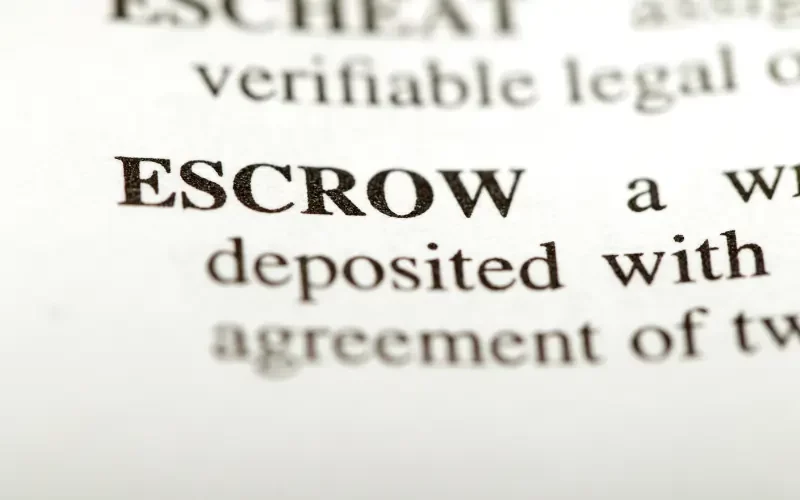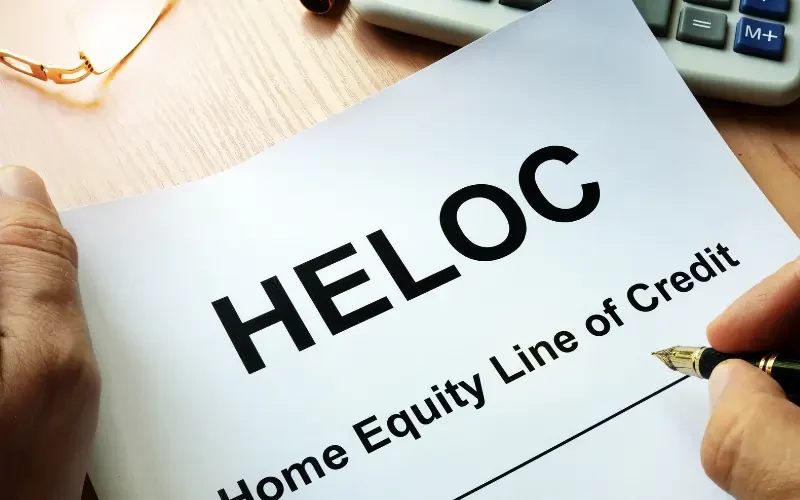
When we talk to homeowners across Texas, one question comes up repeatedly: “What if I can’t afford closing costs?” You’re definitely not alone in this concern. With the current housing market showing homes staying on the market for 72 days in the first quarter of 2025 and seller closing costs ranging from 6-10% of your home’s value, many homeowners we work with face this exact challenge. The good news? Cash home buyers in Texas can help you avoid many of these upfront expenses entirely.
Whether you’re in Dallas, Houston, Fort Worth, Arlington, or any of the DFW area communities, we’ll walk you through six practical options to handle closing costs without breaking the bank. From working with cash buyers to negotiating with lenders, you have more choices than you might think. We’ve helped hundreds of homeowners navigate these challenges, and we’re here to share what we’ve learned.
Quick Answer: What If I Can’t Afford Closing Costs in Texas?
If you can’t afford closing costs in Texas, your best options include selling to a cash buyer who covers all fees, negotiating with your real estate agent for lower commissions, using a short-term loan or HELOC, or exploring seller financing arrangements. Cash buyers eliminate the need for upfront closing costs entirely, making this often the fastest and most cost-effective solution we recommend.
The key is understanding that closing costs aren’t always set in stone. Many fees can be negotiated, rolled into offers, or avoided completely, depending on how you choose to sell your property. We’ve seen homeowners save thousands by exploring these alternatives.
What Are Closing Costs for Sellers in Texas? Typical Fees & Amounts
Before we explore your options, let’s break down what you’re actually dealing with. Closing costs for sellers in Texas typically run about 3.49% of the home’s selling price, but this doesn’t include real estate agent commissions, which add another 5-6% to your total costs. When we review the total cost of selling a house with our clients, these numbers can be eye-opening.
Here’s what’s typically included in seller closing costs:
Fixed Costs You Can’t Negotiate:
- Property taxes (prorated for your ownership period)
- Recording fees (around $750 statewide)
- Title search fees ($100-$200)
- Municipal lien search ($100-$200)
- Lender’s title policy (if required by buyer’s mortgage)
Costs That Can Be Negotiated:
- Real estate agent commissions (typically 5-6% total)
- Owner’s title insurance (0.56-0.7% of sale price)
- Real estate attorney fees (average $278 per hour)
- Escrow fees (1-2% of purchase price, often split with buyer)
- Various closing costs that can be shifted between parties
Additional Potential Costs:
- Home inspection fees ($375-$475)
- HOA transfer fees
- Buyer incentives (averaging $6,080 in Texas)
- Appraisal fees (sometimes negotiated with the seller)
- Prepaid expenses for utilities or services
For context, if you’re selling a home for $350,000 in Texas, your total cost of selling a house, including commissions, could reach $24,500-$35,000. That’s a significant chunk of your proceeds, which is why we often recommend exploring cash buyer options.
Do You Have to Pay Closing Costs Up Front? How Proceeds & Escrow Work
Here’s where many sellers get confused about the payment and closing process, and we get this question constantly. In most traditional sales, you don’t write a check for closing costs on the closing date. Instead, these costs are deducted from your sale proceeds during the escrow process.
Here’s how we typically see it work:
- Escrow Opens: When your purchase contract is signed, funds go into an escrow account held by a neutral third party
- Costs Accumulate: Throughout the closing process, various closing costs accumulate as services are performed
- Settlement Day: All projected closing costs are tallied and subtracted from your gross proceeds
- You Receive Net Proceeds: What’s left after all costs and your remaining loan principal
The challenge comes when your closing costs plus remaining mortgage balance exceed your home’s purchase price, or when you need cash for your next home purchase before closing. This is when you might need to pay upfront or explore alternative solutions. We’ve helped many homeowners who found themselves in exactly this situation.

6 Options for Sellers Who Can’t Afford Closing Costs
1) Sell to a Cash Buyer (no upfront fees)
This is often the fastest and most straightforward solution we recommend. Cash buyers like Four 19 Properties purchase homes directly without requiring traditional financing, which eliminates most closing costs entirely. We’ve structured our process specifically to help homeowners avoid these financial hurdles.
How it works:
- No real estate agent commissions to pay
- No repairs – sell as-is
- No buyer financing contingencies or loan origination delays
- Cash buyers typically cover title insurance and escrow fees
- Close in as little as 7-14 days
- Receive a guaranteed cash offer with no hidden fees
- No need for multiple mortgage lenders or loan applications
When this makes sense:
- You need to sell quickly
- Your home needs repairs you can’t afford
- You want to avoid the hassle of showings and negotiations
- You’re facing foreclosure or need immediate cash
- Traditional buyers are requiring too much seller credit
The trade-off is that cash offers typically come in a little below market value, but when you factor in saved commissions, closing costs, and repairs, the net difference is often smaller than expected. Plus, you save money on months of carrying costs like monthly mortgage payments, utilities, and property taxes.
2) Negotiate Agent Commissions and Seller Fees
Real estate agent commissions make up the largest portion of your selling costs. The good news? These are completely negotiable, especially in today’s market, where inventory went up 30.7% in Texas in the last year. Many homeowners we talk to have explored these options before deciding on a cash sale.
Strategies that work:
- Interview multiple agents and compare commission rates
- Look for discount brokers charging 1.5-3% instead of 6%
- Negotiate a sliding scale based on the home’s purchase price
- Consider flat-fee MLS services if you’re comfortable handling showings
- Ask about closing costs waived in exchange for a higher commission
Other negotiable fees:
- Real estate attorney fees (shop around for competitive rates)
- Title insurance (some companies offer package discounts)
- Escrow fees (smaller title companies may be more flexible)
- Specific closing costs that can be allocated differently between parties
Market leverage: In areas with high inventory, like we’re seeing across Texas, you may have more negotiating power with service providers eager for business. We often advise sellers to get multiple quotes before making decisions.
Considerations:
- Lower commission agents may provide less marketing or support
- Discount services might not include professional photography or staging advice
- You may need to be more involved in showings and negotiations
- Some agents won’t show homes listed with very low commission rates
- Market conditions affect your negotiating power – in hot markets, agents have less incentive to reduce fees
- Consider the total value provided, not just the commission percentage
3) Short Sale or Lender Payoff Negotiation (if underwater)
If you owe more on your mortgage loan than your home is worth, you might qualify for a short sale. This is when your mortgage lenders allow you to sell for less than the outstanding loan amount. We’ve seen homeowners successfully navigate this process with the right professional guidance.
Short sale process:
- Get a market analysis showing your home’s current value
- Contact your mortgage company’s loss mitigation department
- Submit a hardship letter explaining your financial situation
- Provide financial documentation, including loan estimate history
- Work with approved buyers and wait for lender approval
Benefits:
- Avoid foreclosure on your credit report
- The lender may waive the deficiency balance on the loan principal
- Some lenders provide relocation assistance
- Less impact on credit scores than foreclosure
- May qualify for financial assistance programs
Considerations:
- Process can take 3-6 months
- Not guaranteed to be approved
- May have tax implications
- Your credit will still be impacted, though less than with foreclosure
- Conventional loans may be harder to qualify for afterward
4) Use a Short-Term Loan, HELOC, or Personal Loan
If you have equity in your home but need cash for closing costs upfront, borrowing might make sense. This works especially well if you’re buying another home and need to close quickly. We’ve seen this work well for homeowners with good credit who need bridge financing.
Home Equity Line of Credit (HELOC):
- Typically offer lower interest rates than personal loans
- You only pay interest on what you use
- Can remain open for future needs
- Usually requires 15-20% equity in your home
- Better rates than most mortgage applications for short-term needs
Personal Loans:
- Faster approval process (often 24-48 hours)
- No collateral required
- Fixed monthly payment schedule
- Higher interest rates than secured loans
- Don’t affect your primary residence equity
Bridge Loans:
- Designed specifically for buying before selling
- Use your current home as collateral
- Terms typically 6-12 months
- Higher interest rates can solve timing problems
- Help avoid rolling closing costs into a new mortgage
Credit Union Options: Many participating lenders and credit unions offer special loan programs for real estate transactions with competitive rates for members. VA loans veterans may have additional options through their benefits.

5) Owner Financing or Lease-Purchase Alternatives
These creative financing options can help you avoid traditional closing costs while potentially getting a better price for your home. We’ve seen these work particularly well in certain market conditions.
Owner Financing:
- You act as the bank, collecting monthly mortgage payments
- Buyers who can’t qualify for traditional mortgages will pay premiums
- You collect interest income over time instead of a lump sum
- The buyer typically handles property taxes and homeowners’ insurance
- Can structure to avoid most traditional closing costs
Lease-Purchase Agreements:
- Tenant pays monthly rent plus extra towards future purchase
- Part of the rent goes toward down payment assistance for the future closing
- You maintain ownership until they exercise the purchase option
- Good for homes that need minor repairs or in slower markets
- Helps buyers who need time to improve their credit for conventional loans
Considerations:
- Requires careful legal documentation from a real estate attorney
- You’re responsible if the buyer defaults
- It may take longer to receive the full proceeds
- Not suitable if you need immediate cash
- Buyer still needs to eventually qualify for a mortgage loan
6) Sell As-Is to an Investor and Roll Costs into the Offer
Real estate investors and companies that specialize in buying homes as-is often structure deals to minimize your out-of-pocket expenses. We’ve perfected this approach to help homeowners avoid closing cost challenges entirely.
How it works:
- The investor evaluates your home in its current condition
- They factor repair costs and closing costs into their offer
- You typically don’t pay commissions or traditional closing costs
- Can often close before the end of the month
- No need for underwriting fees or loan origination delays
Benefits:
- No home staging or cleaning required
- No inspections or appraisal fees to worry about
- Predictable closing timeline
- Avoid months of showing appointments
- No risk othe f deal falling through due to the buyer’s mortgage application issues
- Skip the stress of coordinating with both the buyer and seller timelines
This option works particularly well for inherited properties, homes needing major repairs, or when you’re relocating for work and need a quick sale. We often see this save homeowners thousands compared to traditional sales.
Common Seller Questions (FAQs)
Can I Borrow Money for Closing Costs?
Yes, you have several borrowing options for closing costs. Personal loans are the most common, typically ranging from $5,000-$50,000 with same-day approval available. HELOCs offer lower rates if you have sufficient equity. Some mortgage lenders also offer seller advance programs, though these are less common. We’ve seen homeowners successfully use forgivable loans and payment assistance programs in certain situations.
The key is ensuring your monthly payment fits your budget and that you’ll have enough equity after the sale to pay off any borrowed funds. Consider that lenders charge application fees, so factor these into your calculations.
How Can Closing Costs Be Waived or Reduced?
Several closing costs can be waived or reduced through negotiation. Title companies may offer package discounts when handling both buyer and seller services. Real estate attorney fees can be reduced by shopping around or using flat-fee services. Some payment assistance programs exist for certain situations, though these are more common for buyers than sellers seeking down payment assistance programs.
Cash buyers often absorb many traditional closing costs as part of their business model, effectively waiving them for sellers. We’ve also seen some no-closing-cost mortgage options where costs are rolled into the loan amount, though these typically apply to buyers rather than sellers.
Can You Negotiate Closing Costs in Texas?
Most closing costs in Texas are negotiable except for government fees like recording costs and standardized title insurance rates set by the Texas Department of Insurance. Everything else, including seller credit, can typically be negotiated as part of your purchase contract.
In the current market with higher inventory levels, you may have more negotiating power than in previous years when homes sold within days of listing. Items like origination fees, insurance fees, and prepaid expenses can often be allocated between parties based on market conditions.
What If I’m Underwater on My Mortgage?
If you owe more than your home’s worth, you have several options. Short sales allow you to sell with lender approval even when the sale price won’t cover your mortgage balance. Some lenders offer deed-in-lieu programs where you transfer the property directly to avoid foreclosure. We’ve helped many homeowners navigate these challenging situations.
Cash buyers sometimes purchase underwater properties and negotiate directly with lenders, though you’ll need to verify any remaining liability for the deficiency balance. The closing disclosure in these situations requires careful review with a real estate attorney to understand your ongoing obligations.

Next Steps: Work with Four 19 Properties to Sell Fast in Texas
If you’re ready to explore selling without traditional closing costs and agent commissions, Four 19 Properties can help. We specialize in purchasing Texas homes quickly and fairly, regardless of condition or your financial situation. When homeowners ask us about how our home buying process works at Four 19 Properties, we’re always happy to explain our straightforward approach.
When you sell your house fast in Granbury, TX, or anywhere else in our service area, you’ll get:
- A no-obligation cash offer within 24 hours
- No real estate agent commissions or origination fees
- We cover all closing costs and title fees
- Close in as little as 7 days or on your timeline
- Buy homes in any condition
We buy houses in Garland, Dallas, Fort Worth, Houston, Arlington, Grand Prairie, Mansfield, and throughout the DFW and Houston metro areas. Our streamlined home buying process eliminates the uncertainty and costs of traditional sales, helping you save money while moving forward with confidence.
To learn more about our company and how we can help solve your closing cost challenges, request a cash offer today. We’ll review your situation and provide a fair cash offer with no obligation and no hidden fees.
Conclusion
Look, we get it – staring down closing costs you can’t cover feels overwhelming, but you’re definitely not out of options. We’ve worked with tons of Texas homeowners in your exact situation.
Sure, you could try negotiating with service providers or exploring creative financing, but here’s what we’ve learned: most homeowners find that selling to a cash buyer like Four 19 Properties is their best solution. We handle the closing costs entirely, which eliminates your financial stress, and the whole process is way faster and simpler than trying to piece together other options.
We’ve been through this with homeowners dealing with job relocations, inherited properties, and tight timelines. When you’re already facing financial constraints, why add more complexity?
The bottom line? While other paths exist, most homeowners discover that working directly with us gets them where they need to be faster and with the least hassle.
Ready to explore your options? Contact Four 19 Properties today for a no-obligation consultation and see how we can help you move forward without the closing cost headaches.
